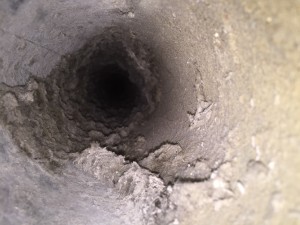A power outage could leave your family feeling frightened and concerned. While utility companies usually restore power within a couple of hours, that’s still a long time to go without essential electrical devices and appliances.
Gas and diesel generators for house use offer an alternative power source, but which one is better?
What Is Better: Gas or Diesel Generators?
Most people think diesel generators for house use work the best. This is because manufacturers design diesel generators to handle higher loads, and they use less fuel to power a home.
If you know how generators work, you’ll also realize that diesel units are more reliable because you can store the fuel on-site. When using a natural gas generator, you’ll have to rely on the gas company to meet your fuel needs in an emergency. If the company’s facility also loses power, you may not be able to use your generator.
What Is the Downside of Using Diesel Generators?
Weather-related outages have increased nearly 80% since 2011, and this pattern will likely continue in the coming decade. This makes it more important than ever to have a reliable source of alternative power. Unfortunately, certain problems with diesel generators for house use can overwhelm homeowners.
Common issues include:
- Higher repair costs
- Noisy operation
- Long or complex installation
Your ability to manage these problems can help you invest in a more reliable system. Planning ahead will help you mitigate most disadvantages.
What Are the Benefits of Using a Natural Gas Generator?
Although it might seem like diesel is clearly better than a natural gas generator for house use, some homeowners select gas models for several reasons. One deciding factor is the smell. Diesel produces an odor that worsens with longer periods of use. Alternatively, a gas generator can offer cleaner, odor-free burning.
Some people also prefer gas generators because they run quietly. When using a generator for house power outages, a diesel unit’s noise pollution can become a nuisance.
Finally, there’s the cost consideration.
While gas models usually come with higher upfront costs, you may end up paying less in the long run. By contrast, diesel units operate more efficiently, but the fuel is more expensive.
A knowledgeable generator installer can help you determine which model will cost less based on your home size, current fuel costs, and other factors.
Are There Drawbacks to Gas Generators?
There are a few other disadvantages of gas generators. A primary worry for some homeowners is that installing a new natural gas device will increase safety hazards. You’ll have to keep up with maintenance and repairs to guard against leaks and explosions. If you notice a rotten egg odor, contact a professional immediately.
Another concern is that gas generators remain in a fixed position because the generator backup for house use connects to the gas lines. Make sure you don’t plan to move before installing a gas generator.
Don’t Wait — Install Your Generator Before the Next Power Failure
When you work with Aire-Flo Heating, Cooling & Generators, you can count on our expert installation skills. Whether you opt for gas or diesel, we’ll install your new generator correctly and without delay. Contact us today to request an estimate!
Whether you require installation, repair, or maintenance, our technicians will assist you with top-quality service at any time of the day or night. Take comfort in knowing your indoor air quality is the best it can be with MOE heating & cooling services Ontario's solution for heating, air conditioning, and ventilation that’s cooler than the rest.
Contact us to schedule a visit. Our qualified team of technicians, are always ready to help you and guide you for heating and cooling issues. Weather you want to replace an old furnace or install a brand new air conditioner, we are here to help you. Our main office is at Kitchener but we can service most of Ontario's cities
Source link


